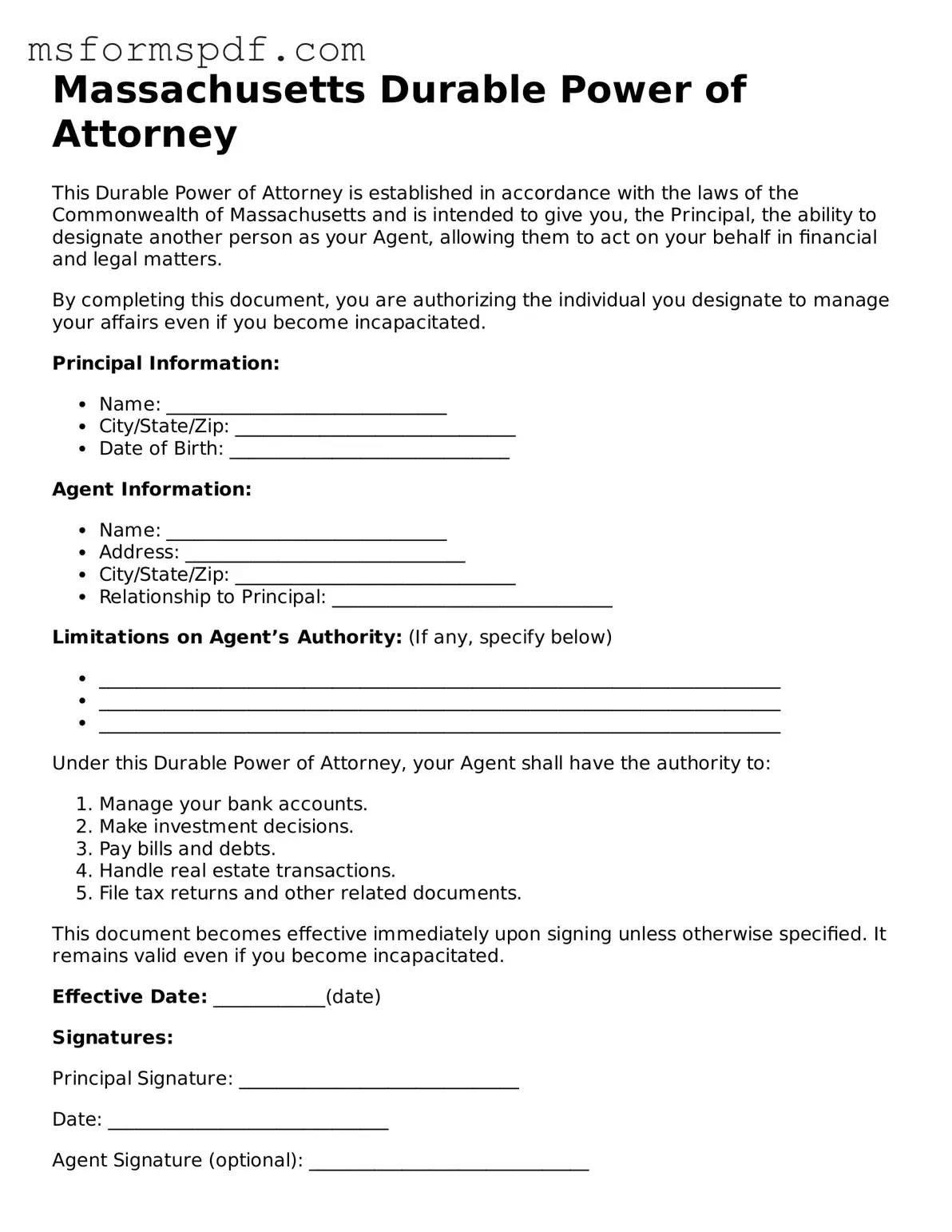Blank Massachusetts Durable Power of Attorney Document
A Massachusetts Durable Power of Attorney is a legal document that allows an individual to appoint someone else to make decisions on their behalf, particularly in financial matters, when they are unable to do so themselves. This form remains effective even if the individual becomes incapacitated, ensuring that their affairs can be managed without interruption. Understanding this form is crucial for anyone looking to protect their interests and ensure their wishes are honored during challenging times.
Launch Editor Now

Blank Massachusetts Durable Power of Attorney Document
Launch Editor Now

Launch Editor Now
or
➤ Durable Power of Attorney PDF Form
Just a moment — finish the form
Fill out Durable Power of Attorney digitally — no scanning, no printing.